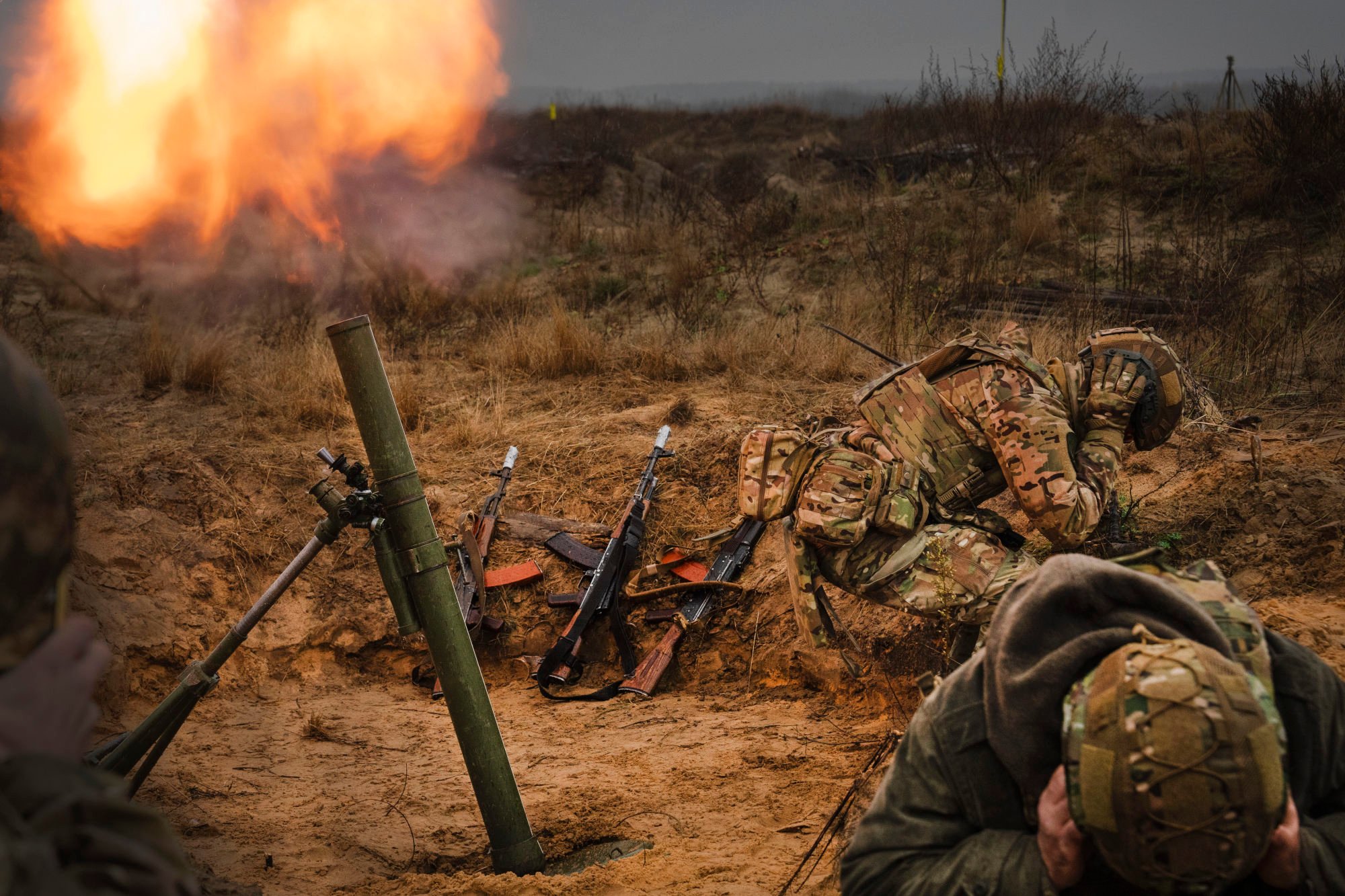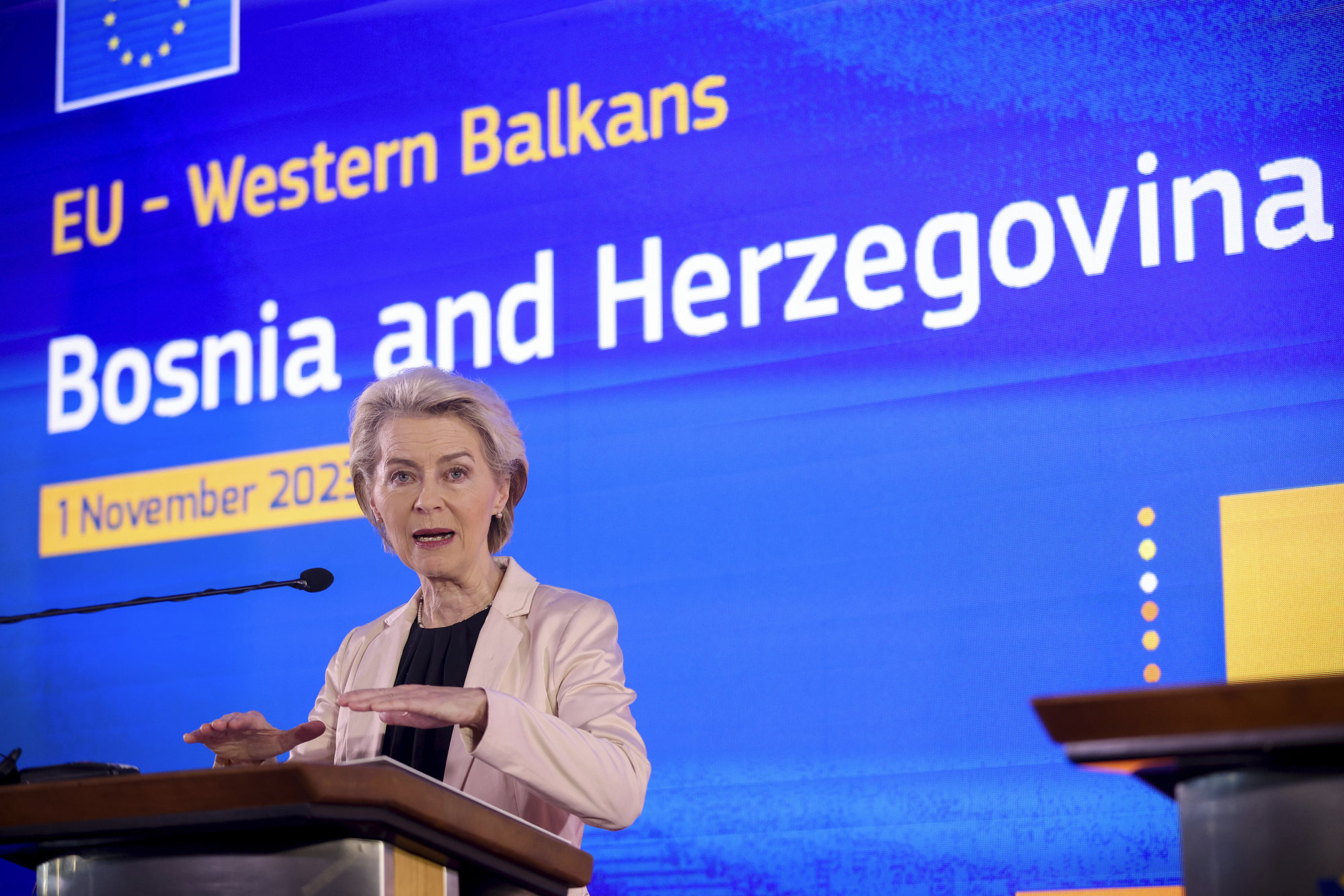The Commission said the talks should formally be launched once Kyiv satisfies the remaining conditions related to reining in corruption, adopting a law on lobbying in line with EU standards and strengthening national minority safeguards.
“This is a strong and historic step that paves the way to a stronger EU with Ukraine as its member,” Zelensky said on social media, vowing to press on with the necessary reforms.
Ukraine’s Zelensky says it is ‘not the time’ for elections
Ukraine’s Zelensky says it is ‘not the time’ for elections
If accepted, EU officials expect formal accession talks with Kyiv to start next year. Such negotiations take years before candidates meet extensive legal and economic criteria to join. The bloc is also wary of taking in a country at war.
“Ukraine continues to face tremendous hardship and tragedy provoked by Russia’s war of aggression,” said European Commission President Ursula von der Leyen. “And yet, the Ukrainians are deeply reforming their country, even as they are fighting a war that is existential for them.”
Her Commission’s report on Wednesday showed that Kyiv met four out of seven conditions to start formal accession talks, though more were near completion. Von der Leyen said the Brussels-based Commission would reassess progress next March.

A top aide to Hungarian Prime Minister Viktor Orban said Budapest would not support Ukraine’s EU integration unless Kyiv changes its laws on minorities, in particular as regards education.
Still, advancing Western integration is a top priority for Ukraine at a time of growing fatigue with the war and concerns swirling over the future of vital US military aid.
Russia’s war in Ukraine has spurred the EU to open up its doors to new members, perhaps as soon as 2030, and countries mired in or emerging from conflict are keen to join.
The Commission on Wednesday made a similar recommendation for Moldova, a small neighbour of Ukraine that is struggling with its own tensions with Moscow.
“Moldova is firmly on the path for EU membership and we will continue working relentlessly towards this goal,” the country’s president, Maia Sandu, said in welcoming the move.
Zelensky ‘not ready’ for Russia talks; Ukraine investigates deadly strike
Zelensky ‘not ready’ for Russia talks; Ukraine investigates deadly strike
EU officials see the Georgian government as more inclined towards doing business with Moscow but they say Georgian society is strongly pro-European.
The Commission said the EU should also begin membership talks with Bosnia and Herzegovina once a long list of extensive conditions are met.

In 2013, Croatia was the last to join the EU – a bloc of 450 million people and one of the richest places in the world, though increasingly struggling to keep its international clout. In 2020, Britain was the first country to ever leave the EU, a major setback for European integration following World War Two.
Russia’s invasion of Ukraine put enlargement back at the top of the EU’s political agenda as the geopolitical rivalry between Moscow and the West erupted with a new force.
“Completing our Union is the call of history,” said von der Leyen. “Completing our Union also has a strong economic and geopolitical logic. Past enlargements have shown enormous benefits both for the accession countries and the EU. We all win.”
Meanwhile, Turkey’s hopes of joining are stalled. The country started its EU membership talks in 2005, but they have ground to a halt in recent years. Ankara’s progress report made for grim reading, despite the bloc’s reliance on Turkey to prevent migrants from coming to Europe.
The commission noted “serious deficiencies in the functioning of Turkey’s democratic institutions”. It said that “democratic backsliding continued”. Human rights standards declined and no progress could be found in the fight against corruption.
Additional reporting by Associated Press

